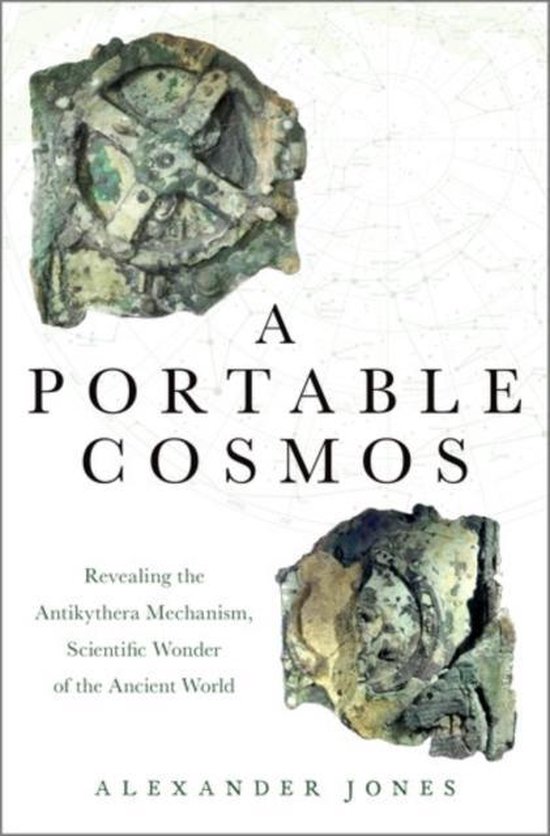
Portable Cosmos
The Antikythera Mechanism, now 82 small fragments of corroded bronze, was an ancient Greek machine simulating the cosmos as the Greeks understood it. Reflecting the most recent researches, A Portable Cosmos presents it as a gateway to Greek astronomy and technology and their place in Greco-Roman society and thought.
In 1901 divers salvaging antiquities from a Hellenistic shipwreck serendipitously recovered the shattered and corroded remains of an ancient Greek gear-driven device, now known as the Antikythera Mechanism. Since its discovery, scholars relying on direct inspection and on increasingly powerful radiographic tools and surface imaging have successfully reconstructed most of the functions and workings of the Mechanism. It was a machine simulating the cosmos as the Greeks understood it, with a half dozen dials displaying coordinated cycles of time and the movements of the Sun, Moon, and planets. A Portable Cosmos presents the Antikythera Mechanism as a gateway to understanding Greek astronomy and scientific technology and their place in Greco-Roman society and thought. Although the Mechanism has long had the reputation of being an object we would not have expected the ancient world to have produced, the most recent researches have revealed that its displays were designed so that an educated layman would see how astronomical phenomena were intertwined with one's natural and social environment. It was at once a masterpiece of the genre of wonder-working devices that mimicked nature by means concealed from the viewer, and a mobile textbook of popular science.
In 1901 divers salvaging antiquities from a Hellenistic shipwreck serendipitously recovered the shattered and corroded remains of an ancient Greek gear-driven device, now known as the Antikythera Mechanism. Since its discovery, scholars relying on direct inspection and on increasingly powerful radiographic tools and surface imaging have successfully reconstructed most of the functions and workings of the Mechanism. It was a machine simulating the cosmos as the Greeks understood it, with a half dozen dials displaying coordinated cycles of time and the movements of the Sun, Moon, and planets. A Portable Cosmos presents the Antikythera Mechanism as a gateway to understanding Greek astronomy and scientific technology and their place in Greco-Roman society and thought. Although the Mechanism has long had the reputation of being an object we would not have expected the ancient world to have produced, the most recent researches have revealed that its displays were designed so that an educated layman would see how astronomical phenomena were intertwined with one's natural and social environment. It was at once a masterpiece of the genre of wonder-working devices that mimicked nature by means concealed from the viewer, and a mobile textbook of popular science.
| Auteur | | Alexander Jones |
| Taal | | Engels |
| Type | | Hardcover |
| Categorie | | Wetenschap & Natuur |

